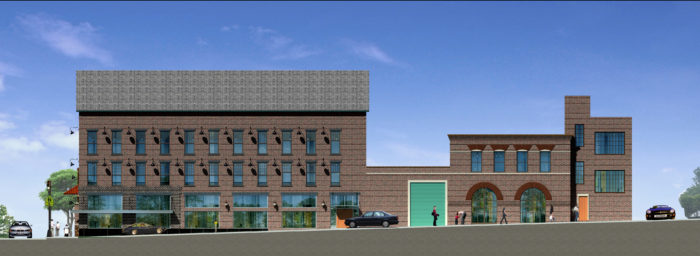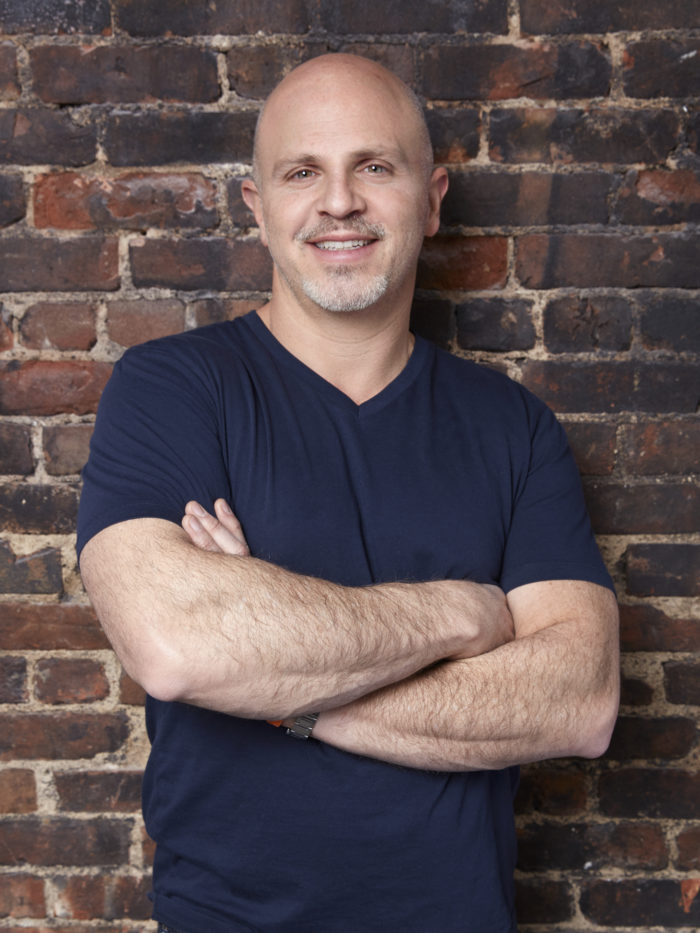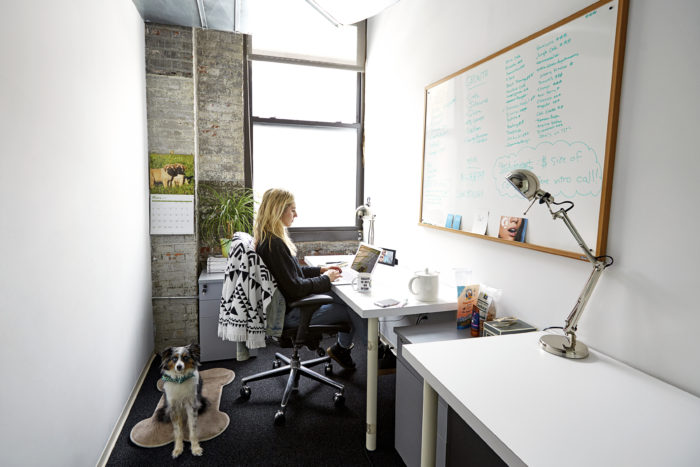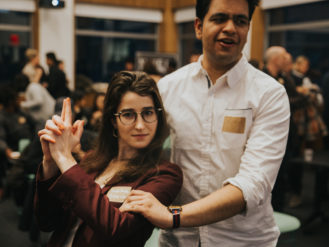How The Yard Thrives as the Coworking Space for Grownups
The Brooklyn-based pioneer grows by keeping things calm and cozy, so the work can get done
Original artwork is an important part of The Yard's identity and vibe (Photo courtesy of The Yard)
How does an industry pioneer keep its edge when a business is exploding with competitors? In the case of The Yard, which launched in Brooklyn in 2011 and was one of the original coworking spaces, the idea has been to keep things small, even as you’re growing. Cozy and calm vs. sprawling and buzzy. “Our location sizes are optimal for networking and community because they’re not too large,” says Morris Levy, The Yard’s co-founder and CEO. “And I think that’s very, very important.”
The caricature of the coworking space became the vast expanse of shared desks, dotted with foosball tables and beer taps to fuel a start-up atmosphere. But it turns out that many workers tend to hate the lack of peace and privacy. The Yard has managed to differentiate itself as the coworking space for grown-ups, with more nooks and crannies, tastefully decorated with original artworks.
That formula has fueled The Yard’s growth. This week the Williamsburg-based company is opening its tenth site, at 157 13th St. in Gowanus, its first space in that blossoming neighborhood. The 25,000 sq. ft. space will be housed in a former industrial building converted to create a bright, modern work environment. “I really saw that area turn around and I’m very excited to be a part of that,” said Levy.

The new space in Gowanus was created in a three-story former industrial building at 13th Street and Third Avenue (Rendering courtesy of The Yard)
From its roots in Brooklyn, The Yard has expanded to Manhattan and Philadelphia and plansto open its first offices in Boston and Washington, D.C., in November. The Yard received a $15 million credit line from IDB Bank in May, which will help the company expand without diluting the equity of Levy and his co-founder, Richard Beyda, and two other partners. Total membership is expected to reach 5,000 by the end of the year, up from 3,000 now.
In the few years since The Yard first opened, the coworking industry has mushroomed, with Manhattan-based WeWork as the industry giant, with more than 110 locations around the world and an estimated valuation of $20 billion. Brooklyn-based Industrious has raised $62 million in funding and is expanding to cities including Pittsburgh and Charlotte. The Wing, a space for women only, is launching a space in Dumbo and has 8,000 people on its waiting list. New Worker magazine, a publication that covers the future of work, created a map of coworking spaces that includes more than 150 spaces in greater New York City.

Morris Levy, CEO of The Yard, who co-founded the company in 2011
To keep its distinction in the saturated industry, The Yard goes beyond keeping its spaces small. The company carefully chooses engaging neighborhoods for its locations and embraces the local artist community. For the Gowanus location, it launched two art-based programs. “There are so many artists in the area that have been displaced because of the area turning around,” Levy said. “We saw in Williamsburg when we opened that the artists really couldn’t afford it because they weren’t in business, so we went and looked at that and said, ‘You know what, if we really want the artists in here, we have to do something special,’ and that’s what we did.” The “something special” was an initiative to bring artists into the space, with discounted membership for six months and an opportunity to grow their brands. The second effort was a call for Brooklyn-based artists to create a mural in the courtyard for the Gowanus space.
Membership at The Yard starts at $295 per month for an open coworking space, with higher rates for a dedicated desk or a private office. Clientele ranges from freelancers to tiny startups to growing companies. For $50, a virtual membership is available that provides a business address, mail service and space to hold an occasional meeting.

The Yard offers private offices as well as room for animal companions
The Yard organizes events at each site, focused more on learning experiences than happy-hour festivity. Over lunch, members may learn how to set up a small business or handle their accounting issues. One of the most popular events has been a recurring market where members who manufacture goods can sell them to fellow members and the extended Yard community.
Each location develops its own culture, said Levy, who’s looking forward to seeing how the next five communities take shape. “There’s nothing more fun than opening a new location,” he says, “and watching it fill up with new members and see what kind of life it takes on.”













